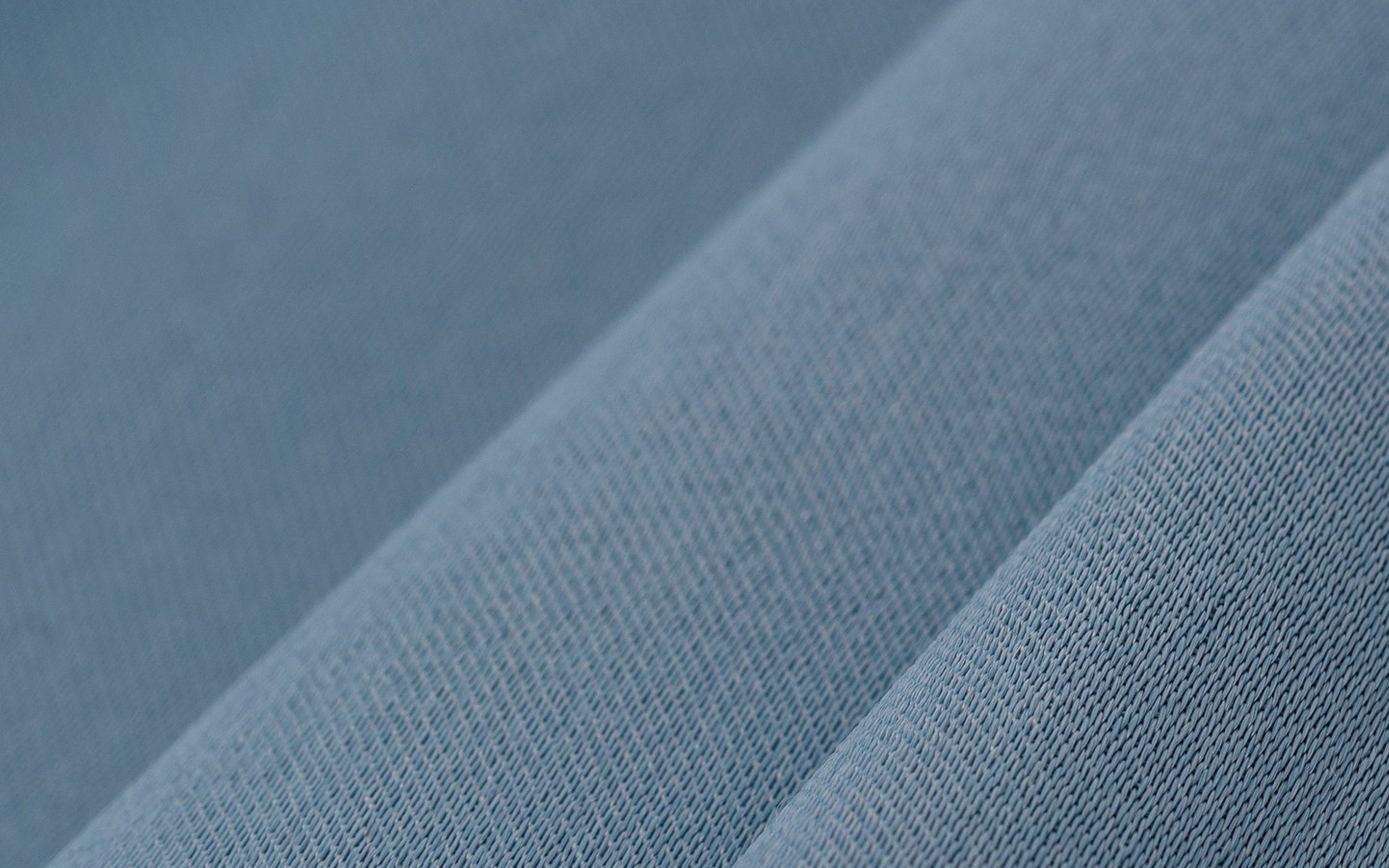Polyester offers technical benefits and durability, making it a versatile choice for blended fabrics.
Polyester is a synthetic fabric, typically derived from petroleum, known for its wide-ranging applications in both consumer and industrial products. It is often blended with natural fibers to combine strengths such as durability, wrinkle resistance, and shrinkage prevention, as seen in popular cotton-polyester blends. We prioritize using recycled polyester, made from post-consumer PET bottles or textile waste. Recycled polyester production reduces energy use, CO2 emissions, and water consumption compared to virgin polyester, preserving natural resources. While we ensure the same fiber strength and quality as virgin polyester, recycled polyester can still release microfibers during washing – this is why we recommend using a GuppyFriend washbag to capture microplastics.
Care Instructions:
- Check the Label: Always refer to the care label for specific instructions regarding color, print, construction, or garment usage.
- Washing: Polyester is generally machine washable. We recommend washing at a maximum of 40°C, although 30°C is sufficient and more environmentally friendly. If the label specifies handwashing, opt for the machine's handwash cycle to avoid garment damage. For manual hand washing, use cold water, mild detergent, and gentle movements, avoiding excessive rubbing.
- Microfiber Release: Use a GuppyFriend washbag to prevent microplastics from entering waterways while protecting the garment.
- Drying: While polyester can be dried using any method, we recommend air drying, which is gentler on your garments and the environment. Avoid direct sunlight for brightly colored polyester items, as it may cause fading. Iftumbledrying, uselowheattoavoiddamage.
- Ironing: Polyester resists wrinkling, but if needed, iron at a low temperature or use a steamer. Hanging garmentsimmediately after drying will minimizewrinkles.
- Heat and Stain Sensitivity: Polyester doesn’t absorb moisture well and can be sensitive to heat, making it prone to sweat stains. Ensure proper washingtopreventlong-term discoloration.
By following these care tips, you’ll help extend the life and quality of your polyester garments while minimizing environmental impact.




